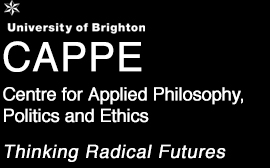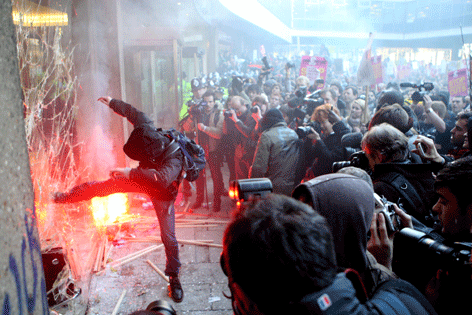11th Sep 2013 - 13th Sep 2013
Grand Parade, University of Brighton


Wednesday 11 to Friday 13 September 2013
The years since “9/11” have seen conflicts arising across the world: repeated protests and riots against austerity; violent conflicts during the various uprisings against dictatorial rule in the Middle East and in other parts of the world; the continuing so-called “war on terror” and the various forms of violence associated with it, including suicide bombing, the use of drones and the indiscriminate bombing of civilian areas. Who has what sort of say about violence, and in particular about political violence? Who is represented and how in decision-making about violence? And how – and by and to whom – are such decisions, and the resulting realities, in turn represented? For most people conflicts and political violence are mediated by television, by newspapers and by the internet, with the ways in which they are presented and re-presented setting the frames of reference within which we can respond to them. How do these two meanings of representation connect, in particular when they come together in both the deployment of violence and in decisions to do so? This conference explored the politics of violence and its representation in their various forms.
Final-CFP.pdf at University of Brighton, College of Arts and Humanities [pdf 52.8 KB]